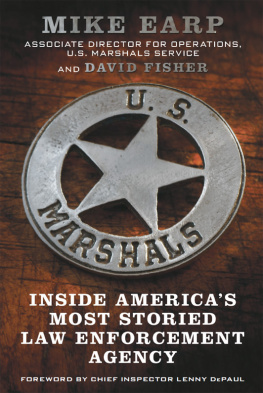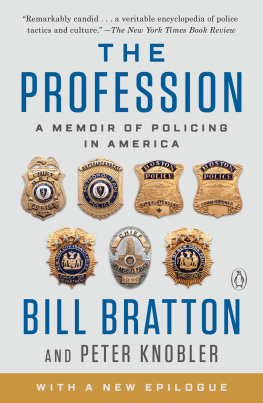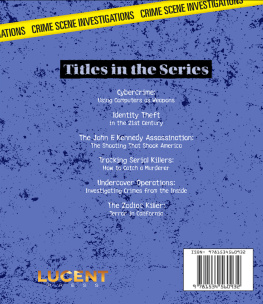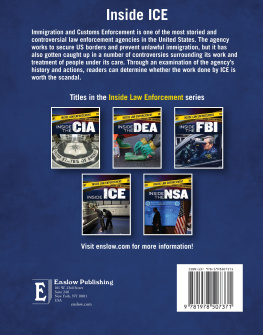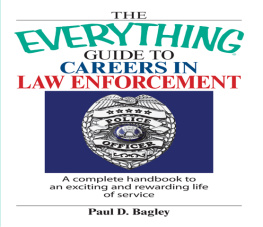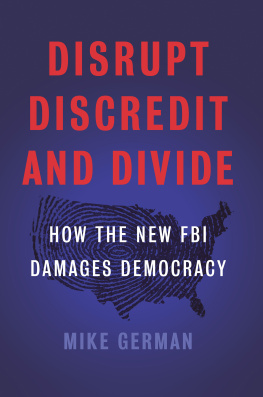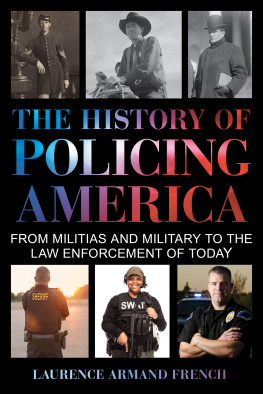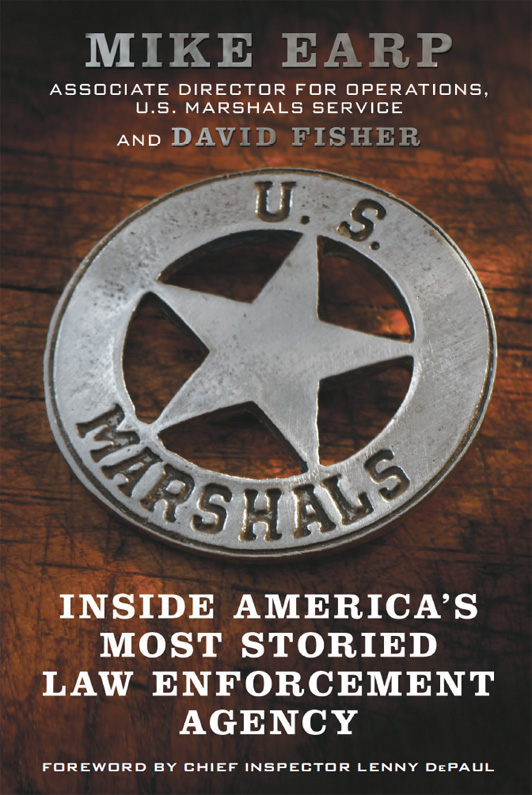The names and identifying details of some of the individuals featured throughout this book have been changed to protect their privacy.
U.S. MARSHALS. Copyright 2014 by David Fisher. All rights reserved under International and Pan-American Copyright Conventions. By payment of the required fees, you have been granted the nonexclusive, nontransferable right to access and read the text of this e-book on-screen. No part of this text may be reproduced, transmitted, downloaded, decompiled, reverse-engineered, or stored in or introduced into any information storage and retrieval system, in any form or by any means, whether electronic or mechanical, now known or hereinafter invented, without the express written permission of HarperCollins e-books.
FIRST EDITION
ISBN 978-0-06-222723-2
EPub Edition MAY 2014 ISBN: 9780062227263
14 15 16 17 18 OV/RRD 10 9 8 7 6 5 4 3 2 1
To my family, Chris, Mike, Joe, Kelly, and Joe G., thanks for putting up with me for so long. With much love.
To Duds, still missing you, bro.
And to the men and women of the U.S. Marshals Service and the hundreds of task force officers: Your dedication to your job, day and night, weekends and holidays, is truly inspirational. Without fanfare and with little recognition, you go through that door every single day making our world a safer place. I salute you, and may you continue to go home each night. Stay safe.
Mike Earp
To Ingwald Troop Hicker, who for forty-two years served the public with great integrity as a New York state trooper and at the Division of Parole. He was a worthy representative of all the men and women of American law enforcement to whom we all owe so much, and was the proud father and father-in-law of George and Kathy Hicker, two of the finest people I have known in my life.
David Fisher
My friends think youre a rent-a-cop and I bet them youre for real. Are you?
Raylan opened his coat to show his star hanging on the silver chain. Im a United States marshal....
Im going to move the badge to my belt. Not get anymore remarks about it. Raylan told him, In case you didnt know it, Im one of the good guys. Ive shot seven men in the line of duty, wanted fugitives, no women or students, and they all died. Raylan smiled at the defensive lineman. You gonna have me telling marshal stories next.
ELMORE LEONARD, Raylan
CONTENTS
By Chief Inspector Lenny DePaul, former commander of the New York/New Jersey Regional Fugitive Task Force, United States Marshals Service
IN THE LATE 1980s I was in the Secret Service, working in the Reagan White House, when a person with whom Id gone through training told me, You know what, Lenny, you really need to get into the Marshals Service.
My story was pretty much the same as everybody elses: I had no idea what he was talking about. What the hell is a U.S. marshal? I asked him.
You know, like John Wayne, he said. Or Matt Dillon. You travel around and lock people up. You get a case and you work it to death. Then you move on to the next case. You never have to wait for the phone to ring. You chase people, youre a manhunter. Its nonstop action.
Where do I sign up? I said. That was in 1989. I moved to Brooklyn, put a cot in the basement of one of my academy buddies parents house, and shared my space with the cockroaches.
It was about two years later that I first heard of this guy Mike Earp. That name, and the obvious connection to Marshal Wyatt Earp, was unforgettable. At that time he was coordinating the establishment of the Marshals Services Puerto Rico Fugitive Task Force. That was a very tough place to work; for the marshals working there Puerto Rico was pretty much lawless. It was a difficult situation; there were a lot of people who didnt want us there. But as he was to do so many times after that, Mike Earp just persevered. He has always been a no-nonsense leader; his mantra was simple and direct: Get er done. And thats what he did in Puerto Rico, he got the mission done without fuss, without drawing attention to himself, and without any sense of drama. Be aggressive, be smart, stay safe. But be aggressive. In many ways, maybe even without realizing it, that was the way we all learned to operate: get er done.
Mike Earp played a tremendous role in making that happen. I actually met him for the first time when he became the chief of the Investigative Services Division. When I started we werent exactly on horseback but we certainly didnt have a lot of new equipment, we definitely didnt get a lot of respect, and no one knew too much about us. They thought we were the people who towed cars with too many unpaid parking tickets or evicted people out of their homes. Mikes ascension up the Washington ladder paralleled our growth as the nations and maybe the worlds best fugitive hunters. Thats what Mike knows, fugitive hunting, and he did it as long and as well as anyone in our organization. I started getting close to him right around 2000, when he became deputy assistant director of the Investigative Operations Division, which is probably the toughest, most stringent, most stressful job in the entire organization. And then the assistant director, and finally the associate director of Investigative Operations, the number three guy in the agency. In that position he oversaw all operational missions. But he also helped shape the future. Working with Assistant Director Bob Finan, he convinced Congress of the value of the permanent regional task force structure, run from Washington, that has helped revolutionize American law enforcement. He has great people skills, and he has a manner about him that attracts dedicated, good peoplethen he tries to give them whatever support they need to get the job done without getting in their way. He has never been afraid to delegate authorityor to give praiseto the people he has worked with.
I learned the job on the streets. Two years after joining the Marshals I was assigned to the Eastern District Warrant Squad in New York, chasing fugitives. I did that for the rest of my career. When we started our first regional task force in May 2002 I had 25 investigators from ten different agencies; when I retired in 2013 the task force included 385 investigators from ninety different federal, state, and local law enforcement agencies. We were locking up about 120 violent fugitives every week, fifty-two weeks a year.
Reality programs started becoming popular while we were running that task force. I got several calls from a producer who wanted to speak to me. Basically I ignored him until Don Heinz, who was in charge of our Public Affairs Office, told me, You know what, youre a brand-new congressionally funded task force. Youre the flagship of the Marshals Service. Speak to them, see what they want.
Several days later two producers walked into my office. The first words that came out of their mouths were Thanks for entertaining this idea. You guys are a parole office, right?
I shook my head. We have parole officers here, but we also have ninety other agencies as well. Thats not what we do. We spend all of our time going after the worst of the worst, the most violent offenders, the murderers, rapists, terrorists. To explain it best I reminded them that Tommy Lee Jones played a relentless deputy marshal in the movie version of The Fugitive. Toward the end of that movie his character has finally cornered Dr. Richard Kimble, played by Harrison Ford, in a water tunnel. As Ford is getting ready to jump into the water, he has a long monologue in which he explains why he is innocent. Its a very compelling speech. You cant help feeling sorry for him. But when he finishes, Jones responds matter-of-factly: I dont care. Thats us; we dont care if you killed three people or are totally innocent. Our job is to find you and bring you back to the bar of justice. Hopefully, everybody goes home safely at the end of the day.

